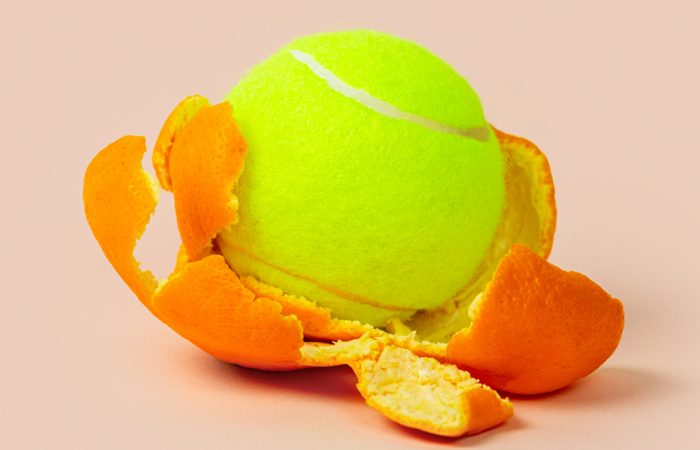A perfect serve: Match-day nutrition
Choosing the right foods, and the right time to eat them, is critical for an optimal performance on a match day.
Melbourne, Australia, 2 March 2021 | Tennis Australia

You’re all set with your game plan on the tennis court, but what about on your plate?
Choosing the right foods, and the right time to eat them, is critical for any athlete’s optimal performance on a match day.
“You need to begin your competitive day adequately fuelled and hydrated – and regardless of timing or personal preferences, it all comes down to preparation,” explains Jo Shinewell, Tennis Australia’s National Performance Dietician.
“That means pre-match eating planned, mid-match food and drinks packed, and appropriate post-match nutritional choices at the ready.”
There’s no need to dust off the kitchen scales and get overly scientific about your macros: Here, Shinewell breaks down the basics with some easy tips for match-day meal planning.
First up, pre-match. Shinewell says the focus for this meal should be on carbohydrates, which serve as fast fuel that the body can easily access during play.
Example meals may include a breakfast of low-sugar cereal and yoghurt, toast with nut butter or a lunch comprising a healthy sandwich, fruit and water.
Shinewell suggests including some form of protein, and going easy on fibre intake. While it’s a nutrient critical to a healthy diet, too much fibre before a game could be difficult to digest and over-filling.
]“It’s best to consume easily digestible foods as you head into your match,” she says.
Along with high sugar cereals that could lead to a mid-match energy crash, Shinewell says it’s also best to avoid eating any food that’s unfamiliar or new – this is not the time for culinary adventures.
“Leave any nutritional testing for training times,” she says.
If you’re finding pre-match nerves messing with your appetite, a liquid breakfast meal may help.
This meal is best eaten several hours before you step on court.
“Ideally, your competitive timetable will be neatly mapped out – but if timeframes vary, you can regularly consume small amounts of food heading into the match,” Shinewell notes.
During competition, one consideration is key: Hydration. Shinewell implores athletes to take regular sips of water, before feeling thirsty.
“The adrenaline of a match can prevent that sensation from even occurring,” she says.
Be sure to pack some snacks in your bag, particularly for the times your match stretches beyond the hour-mark.
“Your body generally has 90 minutes of fuel to work with,” Shinewell explains. “Adding some food and fluid will ensure energy is released into the blood stream while you’re competing.”
Compact and transportable go-tos here include bananas, sandwiches and energy bars or gels.
You’ve won your game, and now it’s time to replenish those energy stores. Shinewell says post-match nutrition is equally important – if not more important – than pre-match eating.
“Your body needs to recover lost fuel stores in time for your next training or tennis session,” Shinewell explains.
She recommends eating within 30-60 minutes of completing your match; either a snack or meal that incorporates both carbohydrates and protein, to help repair strained muscles. Aim for 20 grams of protein and 0.8 grams of carbohydrates per kilogram of body weight.
Some of Shinewell’s favourite options here include protein-filled sandwiches, crackers topped with healthy proteins (such as tuna, chicken or low-fat cheese), dried fruit and nuts, and homemade smoothies.
Finally, top off your post-match meal with a slice of juicy fruit, such as watermelon, to help replenish fluids lost on court. With the right recovery foods and plenty of hydration you’ll quickly be ready for your next big game.
Edited from an original Australian Tennis Magazine feature